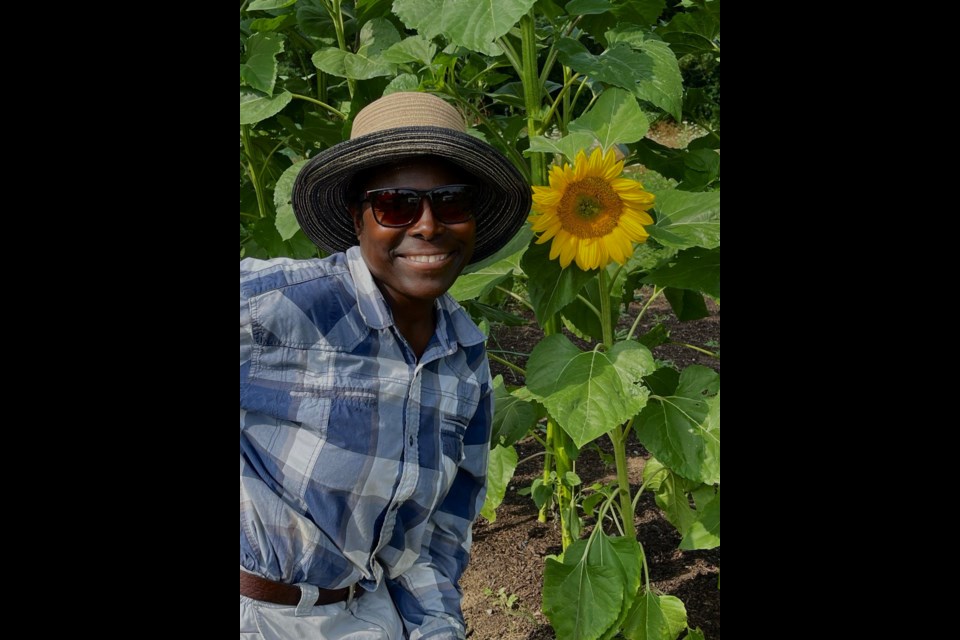Surrounded by vast farm fields full of sugarcane, herbs, fruits, and vegetables, growing up in St. Elizabeth, Jamaica, was a paradise on earth for Tiffany Lauren.
“It was like the Garden of Eden. My grandparents, who were biodynamic farmers, involved me and my sisters in everything they did on the farm," Lauren said.
“They taught me the importance of being a good steward of the land.”
Moving to Toronto, her parents began to grow vegetables in a backyard garden, in the city.
“It was in Toronto that I found my purpose in life. I recall the St. Lawrence Market was my favourite place. On a Saturday morning, I was one of the first people there. I just loved seeing all of the fresh vegetables,” Lauren said.
“Everyone should have access to fresh produce.”
Today, as the founder of Agápe Farms on Fourth Line in Guelph Eramosa Township, Lauren actively builds and participates in a sustainable food system which provides equitable food access for diverse consumers including families and seniors facing food insecurity.
Based on a circular economy approach, Agápe Farms works to assist in boosting the local economy while providing the community access to nutritious farm-to-table produce.
“Seeing the lack of fresh produce has never left me. I always wondered how to get fresh food to people who frequent the food bank,” she said.
In 2012, Lauren volunteered at PWA (Toronto People with AIDS Foundation) as an essential market ambassador and community garden team lead.
“I learned how to bring fresh produce to the needy community. With help from clients and neighbourhood residents, we managed a 14-plot organic garden in Moss Park, where we grew organic vegetables and herbs for the food bank called the Essential Market,” Lauren said.
“Back then, I did not think this was possible on a larger scale. I was amazed at how much food we were able to produce in a park, right in the city,”
Seeking a larger area to grow food, Lauren decided it was time to move out of the city.
“I never thought I would be pried away from Toronto. I grew up in Toronto. It’s my stomping ground, I know it like the back of my hand,” Lauren said.
“But when I would drive in the country, and see all of this open space and farmland, I would think, wow, look at how much food I could grow.”
In 2020, Lauren created Agápe Farms and moved to rural farming in Wellington County, Milton and Puslinch.
“In Guelph, we have about five acres. Guelph has some of the richest soil in the world. And so, I cringe when I see all of this soil just sitting there," she said.
During the pandemic, Agápe Farms continued to prioritize vulnerable communities and to donate to non-profit organizations including Hope House in Guelph.
“I look forward to working with Hope House more this year, to bring more seedlings and produce that we grow,” Lauren said.
“And I hope to find more organizations that I can connect with.”
When it comes to growing at Agápe Farms, Lauren says new volunteers are always welcome.
“It’s brings people together. It's not a lot of work. We just need hands," she said.
“There is nothing better than harvesting your own food and taking it to your table.”
Lauren says there is a valuable lesson to be learned when it comes to COVID-19 and food sustainability.
“What else will come along that will prevent us from leaving our home and from accessing food? When we go to the grocery store, often we don’t think about where our food comes from,” Lauren said.
"My focus is to grow imported vegetables. We can, organically, right here. Since the pandemic, there's an awareness now. And it's about being proactive. We can make sure we have an abundance, so that if anything happens again, everyone has access to fresh food."
Agápe Farms hopes to partner with like-minded youth entrepreneurs, newcomers, seniors, chefs, local food markets, and any individuals who might have some tips in preserving, canning, fermenting, and jarring.
"We are also putting together an organic food hub where people can have access to organic seeds, food, and a kitchen where you can come to help prepare meals and purchase meals on a sliding scale. If you only have a dollar, we will take a dollar and you can have a meal," Lauren said
"For anyone who would like to show off their culinary skills, we invite them to help prepare meals for the community where people can purchase fresh meals right from the farm."
Lauren says it's not about creating huge profits, but building a blueprint that future generations can adopt and duplicate to create a better diverse food system.
"I hope to bring this passion to others because the most important thing is our food system, improving our land, and not depending on others to grow our food," Lauren said.
"Food is the key. People should not have to worry about where to get it."



